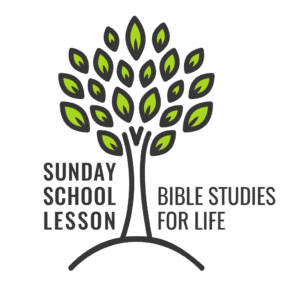Focal Passage: Hebrews 11:1-6; 13-16
 Discerning and obeying God’s voice calls for faith in God. But what is faith? Just as we talk about love without knowing what love is, we talk a great deal about faith without understanding its definition. What is the anatomy of faith that enables us to discern and do the will of God? Hebrews 11 is our guide.
Discerning and obeying God’s voice calls for faith in God. But what is faith? Just as we talk about love without knowing what love is, we talk a great deal about faith without understanding its definition. What is the anatomy of faith that enables us to discern and do the will of God? Hebrews 11 is our guide.
First, Hebrews 11:1 says that “Faith is …,” meaning that faith is something and not nothing. We do not believe in nothing or in thin air. This leads us to a second, complimentary point — faith is a reality, it has substance. In other words, faith is not wishful thinking. Christians believe (have faith) in historical facts and events that took place in time and space and that form the basis of our trust. The leap of faith lands on the hard soil of historical reality.
Third, genuine faith produces hope for living and fourth, faith gives proof or evidence of things that we have yet to see. For example, even though we have never seen God (I Peter 1:8), we believe He exists based on various pieces of evidence, spiritual, historical, material and ontological evidence. God has not left Himself without a variety of proofs so that we are without excuse as to His existence (Romans 1:18-23).
Fifth, Hebrews 11:2 asserts that faith is something that, if you will, approves us before God. Just as the ancients were approved before God by their faith, we, too, are approved of God by our faith. Why? Because good works or self-righteousness does not approve us before God; instead, an absolute, child-like faith in Christ does.
Sixth, faith interprets the material world as having been created and designed (Hebrews 11:3). There is design because there is a Designer. The likelihood that a ‘finely tuned’ universe came about by accident is unlikely.
Seventh, a robust, confident faith responds with obedience that pleases God. Just as Abel offered a better sacrifice and Enoch walked with God, we must live with a confident faith that is obedient and faithful. The difference between Cain and Abel’s offerings to God was not the substance of what they offered, but the faith-filled attitude in which it was offered.
Eighth, genuine faith is the only way to please God. In fact, it is impossible to please God apart from believing faith (Hebrews 11:6). Faith requires a bold confidence that brings with it a promise — if we draw near to God, He will reward us. And what is the reward of faith? God Himself.
Ninth, faith keeps us focused on God’s Word and promises. Some of our spiritual fathers and mothers did not live long enough to see the fruition of their faith. But this did not deter and diminish their faith. Why? Because they knew that some of the things they were looking for would not see their completion in this life.
They had the kind of faith that understood the nomadic nature of the Christian life. Faith understands that this life is not all that there is. We are pilgrims whose ultimate destiny will only be fulfilled in the life to come.
Tenth, and finally, as the old hymn states, one day our ‘faith will be sight.’ That is, God is preparing for us a future in another time and place where our faith will be rewarded by being in the presence of God. We will see Him as He is. This is faith. B&R

